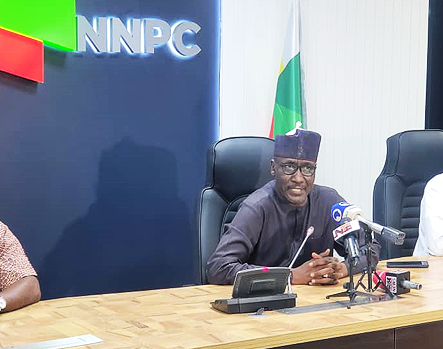The Nigerian National Petroleum Company Limited (NNPCL) has withheld a staggering N13.763 trillion in revenue from the Federal Government between 2012 and 2024, according to documents from the Federal Accounts Allocation Committee (FAAC). This massive sum represents the difference between the N27.28 trillion the NNPCL declared as payable from domestic crude sales and the N13.524 trillion actually remitted to the Federation Account, the central fund for distributing resources across federal, state, and local governments. This substantial shortfall has placed a significant strain on the government’s ability to fund its budget and provide essential services. Furthermore, the withheld revenue raises critical questions about transparency and accountability within the NNPCL, fueling concerns about potential mismanagement and corruption within the national oil company.
The NNPCL’s withholding of trillions of naira has prompted investigations and accusations from various government bodies and watchdog organizations. The Auditor-General of the Federation accused the NNPCL of diverting N2.68 trillion and $9.77 million between 2017 and 2021. The Senate initiated a probe into N8.4 trillion allegedly withheld for fuel subsidy payments, while the House of Representatives Public Accounts Committee investigated $1.6 billion in unpaid royalties owed to the Federation Account by the NNPCL and other oil companies. Adding to the mounting evidence of financial irregularities, the Nigeria Extractive Industry Transparency Initiative (NEITI) reported that the NNPCL failed to remit N3.6 trillion in taxes. These concurrent investigations point towards a systemic issue of non-remittance and potential misappropriation of funds within the NNPCL.
A detailed breakdown of the FAAC document reveals a pattern of consistent revenue withholding by the NNPCL over the years. While the company remitted substantial sums to the Federation Account, it simultaneously withheld significant portions of its earnings. For instance, in 2012, N1.42 trillion was withheld despite a remittance of N1.54 trillion. This trend continued in subsequent years, with varying amounts withheld alongside substantial payments. This pattern suggests a deliberate strategy of retaining a portion of revenue, regardless of the overall amount generated. The withheld amounts fluctuated over the years, reaching a peak in 2022 when a staggering N4.16 trillion was withheld, coinciding with a sharp drop in remittances to a mere N245.83 billion.
The documented discrepancies between declared revenue and actual remittances underscore the pressing need for increased transparency and accountability within the NNPCL. The withheld funds represent a significant loss of potential revenue for the government, impacting its ability to finance critical programs and infrastructure projects. The ongoing investigations and accusations of diversion and non-remittance further highlight the need for comprehensive reforms within the oil sector to ensure proper financial management and prevent further losses to the nation’s treasury. The lack of response from the NNPCL spokesperson to inquiries about the withheld funds further reinforces the perception of opacity and a lack of accountability within the organization.
Analysts express deep concern about the long-term implications of the NNPCL’s actions. The withheld revenue directly impacts the Federal Government’s capacity to fulfill its budgetary obligations, potentially leading to delays or cancellations of crucial projects and services. Furthermore, the shortfall affects state and local government finances, hindering their ability to deliver essential services to their constituents. This financial strain could exacerbate existing social and economic challenges, potentially leading to further instability. The situation underscores the urgent need for systemic reforms within the NNPCL and the broader oil sector to ensure transparency, accountability, and the proper remittance of revenues to the Federation Account.
The Centre for Anti-Corruption and Open Leadership (CACOL) has characterized the NNPCL as a “hub of institutional corruption,” alleging that powerful individuals within and outside the government have shielded the organization from accountability. Despite the Petroleum Industry Act, designed to promote transparency and efficiency within the oil sector, the NNPCL’s operations continue to be shrouded in secrecy, with persistent allegations of corruption and mismanagement. CACOL asserts that the NNPCL has long been a source of illicit enrichment for government officials, and that even anti-corruption agencies struggle to investigate the company effectively. These allegations highlight the deep-rooted nature of the challenges facing the Nigerian oil sector and the urgent need for decisive action to address them. The lack of transparency and accountability not only deprives the nation of vital resources but also erodes public trust and confidence in government institutions.


